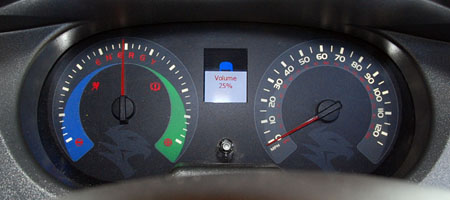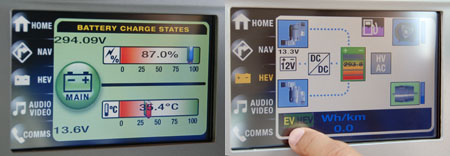Here’s something unexpected. We’ve not only got up close and personal with Proton’s prototype Exora EV, we’ve driven it already! And this wasn’t at a Proton event, but at the iGREET (Information on Green Technology) seminar series on green technology organised by Cyberview Sdn Bhd, the landowner of Cyberjaya. Proton was invited to this sixth and last iGREET session to talk about its foray into the electric vehicle scene.
As most know by now, Proton will roll out green cars in the near future that are often dubbed as “hybrid cars” by the media. In actual fact, the cars coming our way aren’t hybrids in the mould of the Prius or Civic Hybrid, but electric cars powered solely by batteries.
Proton’s Green Project Team is working with UK-based Fraser-Nash Research, Lotus, Imperial College London and Universiti Teknologi Malaysia (UTM) on a Range Extender Electric Vehicle or REEV – Proton is currently testing the REEV Exora with and without the range extender function, because it’s just a matter of switching the engine on or off.

Some of you might wonder what a range extender is? One of the main drawbacks of an EV is the limited range, and the RE engine takes care of this by providing the battery with juice when it runs dry. So you can reach your destination safely before plugging the car in. The Chevrolet Volt also uses such a system, where its ICE engine doesn’t power the wheels. The experimental RE in the Exora EV prototype is a 400 cc rotary engine with 50 hp. The mass production model most probably won’t come with a rotary, but the target is minimum 50 hp.
There are two electric motors powering this Exora – one for each front wheel. Each makes 35 kW to make 70 kW in total, while torque is rated at 220 Nm combined, available from rest. Proton has decided on the use of lithium polymer batteries, which is more advanced than the lithium ion variety, which is already better than the NiMH packs used in today’s hybrids. Targeted charging time from 10% to full is 6-8 hours while fast charging takes 30 minutes. Proton is aiming for 140 km/h top speed and 140 km range on the Saga body, so we’ll presume that the figures will be slightly less for the Exora.

A charging infrastructure is obviously needed, but at least EV drivers won’t be stranded due to the range extender engine. The REEV Exora is heading to production as early as next year, although nothing is confirmed at this point, which is why we don’t have a detailed technical analysis.
What we have however, is driving impressions of the REEV Exora. We drove the exact same car that won the “Best Range Extender EV” award at the Royal Automobile Club (RAC) Future Car Challenge in England earlier this month. Read it and view the pics after the jump!



No comments:
Post a Comment